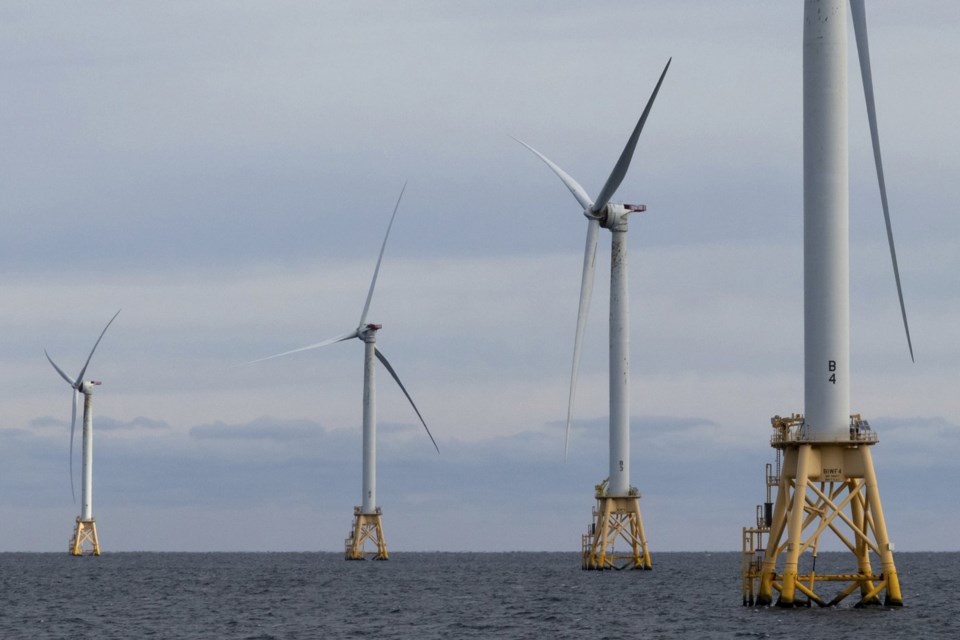HALIFAX — The Nova Scotia government is planning to kick-start its offshore wind industry — with or without federal approval — and launch a first call for project bids next year.
Amendments tucked into an omnibus bill introduced Tuesday will help ensure the province meets its offshore wind and climate change goals, Natural Resources Minister Tory Rushton told reporters.
After it launches a first call for project bids in 2025, the province wants to offer licences to develop a total of five gigawatts of power from offshore wind by 2030.
"Normally we’d wait for the federal process to finish, but it has been progressing slowly and we don't want to waste any time," Rushton said.
Federal legislation that would enable the development of offshore wind farms in Nova Scotia and Newfoundland and Labrador has passed through the first and second reading in the Senate, and is currently under consideration in committee.
Rushton, who referred to the potential offshore wind industry as the Nova Scotia's "greatest economic opportunity since the age of sail," said the bill his government introduced Tuesday mirrors the federal legislation and would prevent the budding industry from being held up by Ottawa.
In June, Rushton and Newfoundland and Labrador Minister of Energy Andrew Parsons were in Ottawa urging the Senate committee to move quickly on passing the offshore wind legislation without amendments. Delays, they said, could lead to projects moving elsewhere, such as the North Sea.
However, groups such as the union for inshore fishers and processing workers in Newfoundland and Labrador, and the Assembly of Nova Scotia Mi’kmaw Chiefs have called for more time so they can study whether offshore renewable energy development harms the fishery or the environment.
The Assembly of Nova Scotia Mi’kmaw Chiefs did not immediately respond to request for comment on Tuesday.
Rushton said his team has been "working very closely with First Nations" on the progress toward developing offshore wind. "I have assurance from First Nations that they are supportive of this process moving forward," he said.
Also included in the bill tabled Tuesday is a name change for the Canada-Nova Scotia Offshore Petroleum Board, which is to be called the Canada-Nova Scotia Offshore Energy Regulator as its mandate expands to include offshore renewable energy.
Meanwhile, the bill also makes changes to seven other pieces of legislation. It includes amendments to ramp up fines for burning during fire bans; changes to the way some aquaculture projects are reviewed in hopes of speeding up the application process; and adjustments to the provincial procurement system so Nova Scotia businesses are favoured in the bidding process.
The amendment to the procurement act stipulates if a bid from a Nova Scotia business comes within 10 per cent of a leading bid on a government contract from an out-of-province company, the local firm will be awarded the work. The province says this is within Canadian free trade agreement limits.
This report by The Canadian Press was first published Sept. 10, 2024.
Lyndsay Armstrong, The Canadian Press



